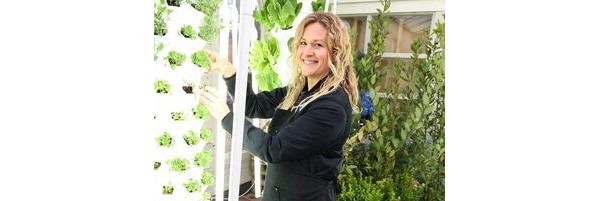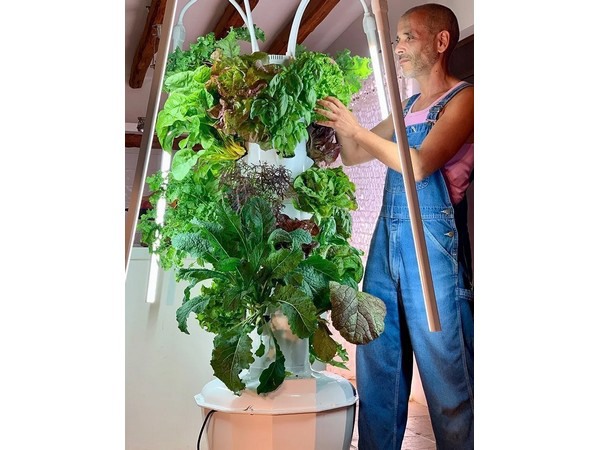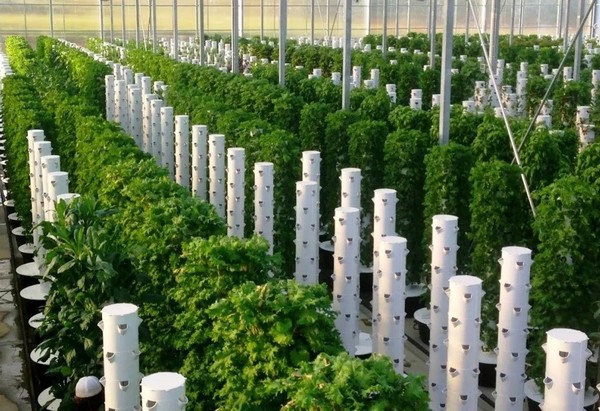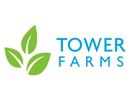“We are excited about the growth and appreciation of the industry and the value it offers. Our towers are energetically efficient, can be installed anywhere, and greatly reduce the carbon footprint of food,” says Jenny Twomey, an authorized commercial representative at Tower Farms and co-founder of Green Towers Ireland.
Originally from Missouri, Jenny married an Irishman and moved to Ireland. Eventually, she would become the first person to bring Tower Garden growing systems to Ireland and co-founded Green Towers Ireland to sell, install and maintain Tower Gardens and Tower Farms in Ireland with her friend Jill O’Brien.

Jenny Twomey
“During the pandemic, we had an increase in residential sales as people were eager to grow their own food. Our residential sales have typically outperformed commercial/farm sales, but now the farm side is gathering momentum,” explains Jenny, who also notes that Green Towers Ireland is seeing a lot of interest in large-scale projects of 100+ towers. The Cork Rooftop Farm, for example, was once a nightclub and has been converted into an urban farm with 100 towers.
Despite the supply chain challenges plaguing the world, Tower Farms has skirted many supply chain disruptions through forward thinking. While the shipment of LEDs was delayed, Tower Farms’ plastics and molds are made in the US, making it easier to ensure supply.

Tower Farm setup at home (Source: Agrotonomy)
Supplemental light add-on available
Tower Farms growing systems are versatile and have been installed in indoor farms, greenhouses, or simply outdoors. The high planting density, use of vertical space, and elimination of soil provide advantages in any setting. Depending on the type of farm and the local light conditions, users can opt for a supplemental lighting extension.
“Our vertical aeroponic system doesn’t need to rely entirely on LED lights. If you are growing in a greenhouse, on a rooftop, or anywhere outdoors, you may not need additional light,” says Jenny.
In cases where supplemental lighting is needed, Tower Farms uses solar radiation data from NASA and crop research to determine how much additional lighting is required and for how many hours the LED lighting should run. Tower Farms has LED light fixtures that are the height of the commercial towers, making wiring and installation more straightforward.

Commercial setup (Source: Agrotonomy)
“We work with lighting experts and use NASA data to make a lighting plan for the grower. We are always exploring lighting options that will provide the most energy savings,” Jenny explains.
Looking ahead, Jenny is eager to follow the development of large-scale products and design tweaks slated for 2023.
“In 2023, we’ll be tweaking the design for the larger farms so that 300+ tower farms can be more efficient. These types of farms won’t be moving their towers around as frequently, so we want to design something that accounts for that and is made for commercial farms,” says Jenny.
 For more information:
For more information:
Tower Farms
www.towerfarms.com
